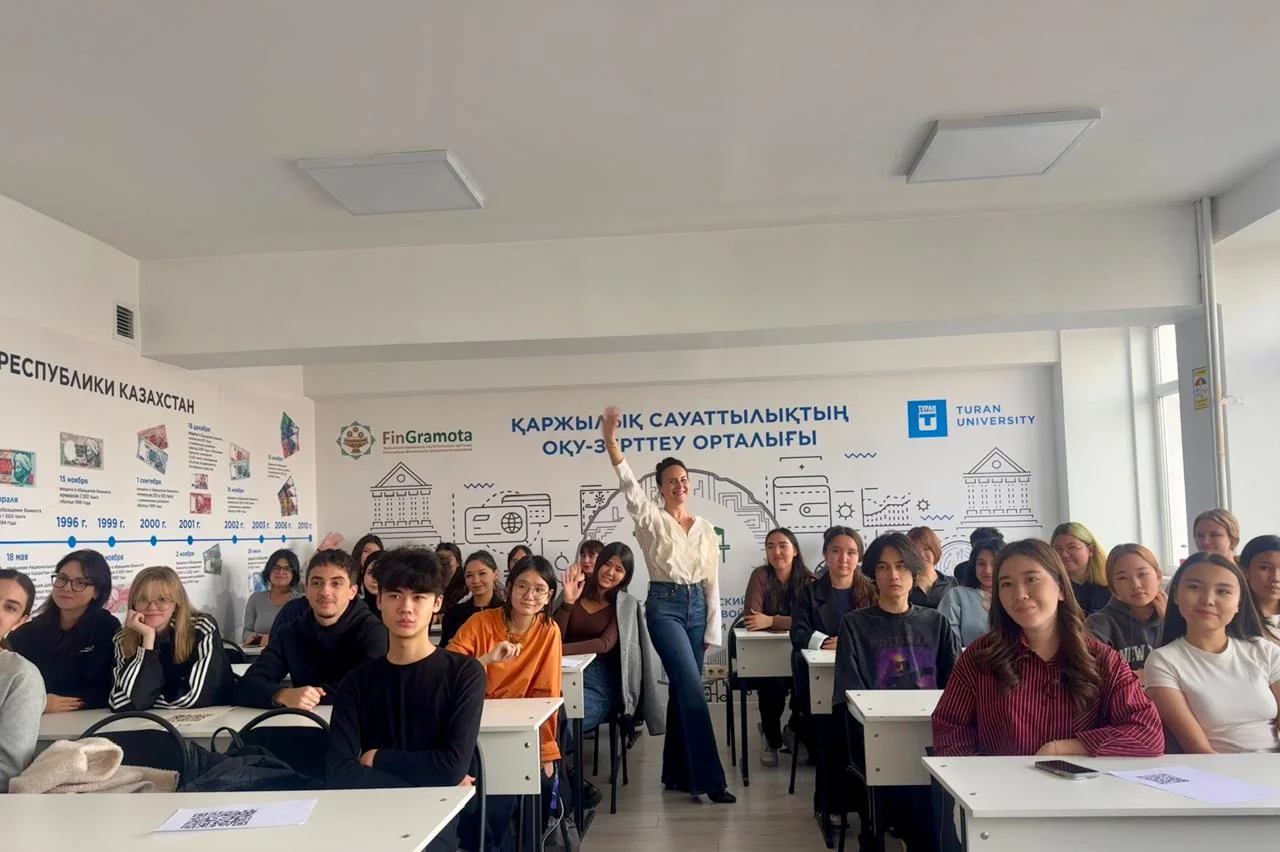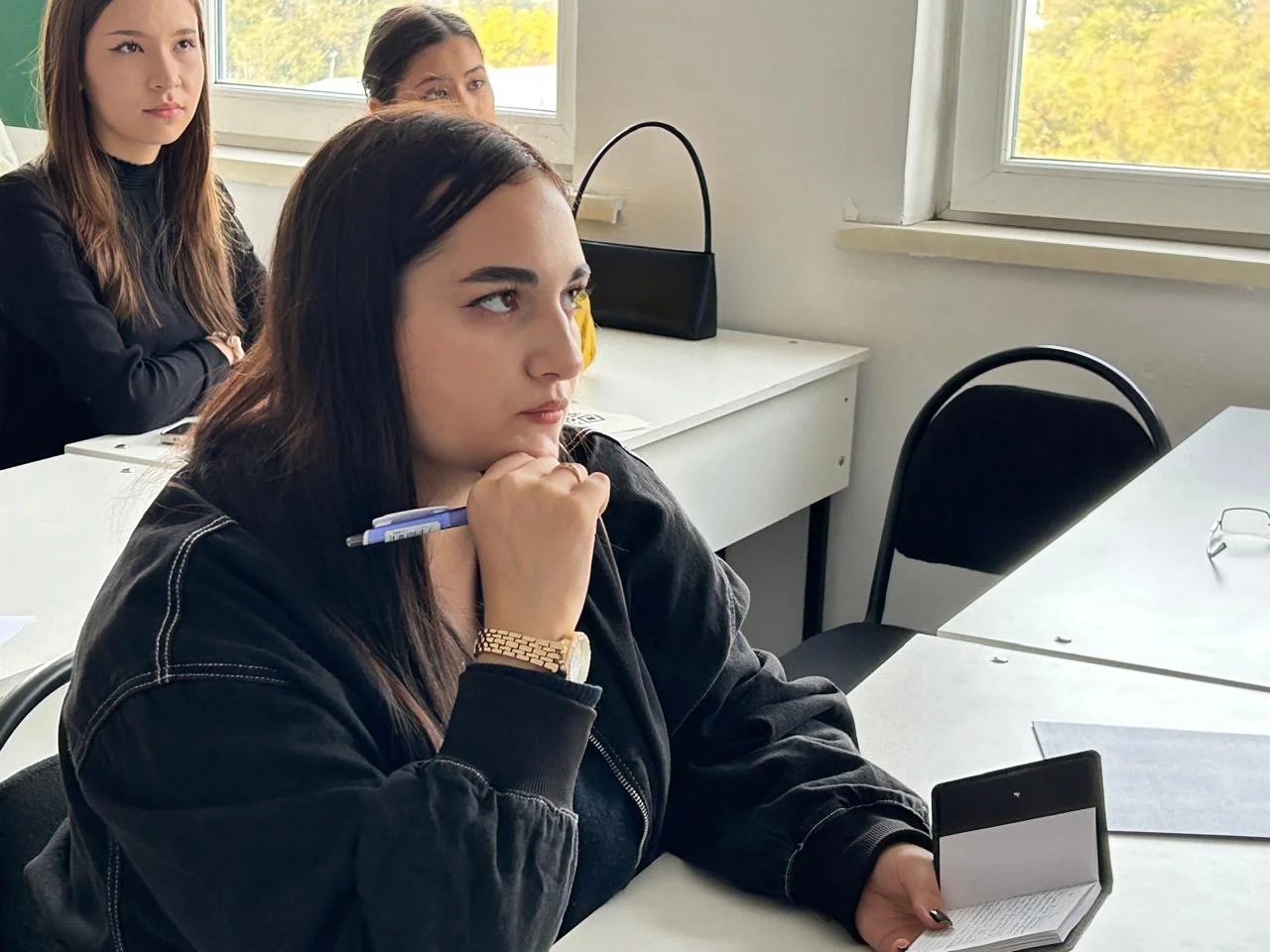Artificial Intelligence and the Humanities
The relationship between Homo sapiens and artificial intelligence — between creator and machine – was the central theme of a lecture by cultural scholar Dr. Anna Esparza, a historian whose research and teaching have taken her to some of the world’s most prestigious universities: the University of Rome, Paris I Panthéon-Sorbonne, the Free University of Brussels, the Universities of Granada and Budapest, and the International Translation Camp in Lakitelek, Hungary.
On October 17, 2025, the researcher of world culture delivered a guest lecture at Turan University in Kazakhstan.
Anna Esparza not only captured the hearts of Almaty students but also managed to “train” artificial intelligence using the poetry of Russia’s Silver Age. During her experiment, more than 60 percent of the audience in Almaty mistook a poem generated by AI for a work by Anna Akhmatova. The situation was saved by Andrey Bely – inspired by AI’s first “victory,” students successfully recognized the genuine Russian writer through his use of symbolism and imagery.
“Artificial intelligence is not an imitation of the human mind but a fundamentally different type of thinking,” Dr. Esparza emphasized. “By combining the strengths of humans and AI, we create a new form of creativity in which each partner’s abilities enhance and complement the other.”
On that warm October day, Anna Esparza gathered students of the humanities in one of Turan’s largest and brightest lecture halls. The discussion focused on how technology is transforming traditional professions – especially journalism, public relations, and translation. According to the scholar, professional standards must remain paramount, while AI should be viewed only as a tool – for example, to process data quickly and collect large volumes of information.
“The key point,” notes Anna Esparza, “is the quality and structure of the query. A human query is like a spotlight illuminating only certain areas within the vast semantic space of the system.”
However, she stresses that machines cannot feel or experience emotions — they lack existential experience, social evolution, and doubt. Therefore, the strength and success of human beings lie in empathy.
“You may write a perfect script,” she said, “but what AI produces as a base must still be reworked and reinterpreted by you.”
In her view, it is precisely intellectual empathy – the ability to understand an interlocutor, sense context, and build a relationship of trust – that keeps journalism alive. Artificial intelligence is not yet capable of this; thus, the task of humanists is to use technology consciously, without losing the human essence or a sense of responsibility toward the audience.
Anna Esparza’s visit to Turan University was not her first. She is currently conducting active research on the culture of Central Asia and is participating in the creation of the book-album “Turkestan – The Cradle of the Turkic World.”
The university expresses its gratitude to Dr. Anna Esparza, PhD in History and graduate of Lomonosov Moscow State University, for her inspiring guest lecture delivered to students of the Faculty of Humanities and Law.
Event Organizers:
- Tatyana Zatonskaya, Supervisor for Image and Public Relations
- Anna Buzelo, Director of the Higher School of Media and Intercultural Communication




